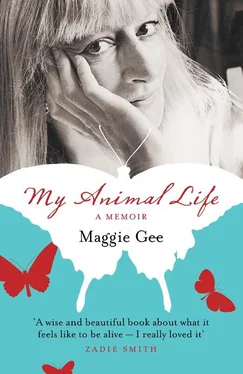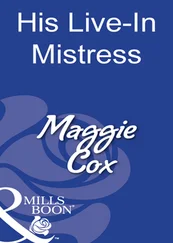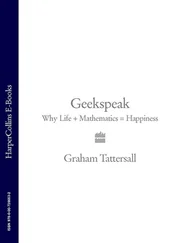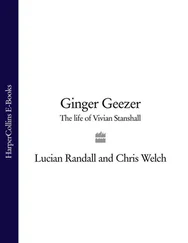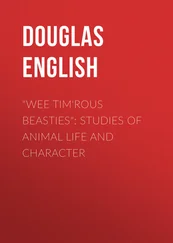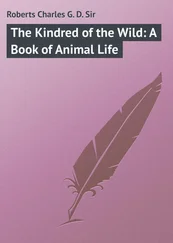Once again, friends of mine stepped in, Moris Farhi, the Turkish writer, campaigner and intellectual, and his wife (and editor) Nina Farhi. Nina: it is still hard to write about her, those intelligent brown eyes and bird-like profile under a Greek girl’s thicket of curls: with whom I would talk passionately about novels while Moris (‘Musa’) cooked succulent chicken, his deep voice interjecting knowledge from the stove. Nina: who played football with us in the garden, lithe and laughing but a deadly opponent. We discussed Fay Weldon and Anita Brookner and our beloved only daughters, and our central theme was often writing, though Nina was a well-known psychoanalyst (she died, alas, most fierce and beautiful and missed, her mind still the mind of an eagle, a claw-hold on life as the sky went dark, while I was finishing this book. How can such presence become an absence?)

Moris and Nina with Rosa — Nina once saved Rosa from falling downstairs with a magnificent goal-keeper’s dive
Nina and Moris both loved The White Family and discussed gravely what to do about it. Moris showed the book to his friend and publisher, the Lebanese sculptor and writer Mai Ghoussoub, co-founder with André Gaspard of Saqi, which had been in existence for over twenty years. I am sure Moris encouraged her in certain expectations; probably he told her it was wonderful; in other words, the ‘frame’ was right.
She read it expecting it to be good because she loved and trusted Moris. I knew she had the manuscript. I dared not hope.
Only my diary can truly tell the story of those unforgettable three days in late April.
Tuesday April 17 2001 was just an ‘ordinary’ day. My daughter was ‘grumpy’, I went on trying to write ‘a new book’ (it was the start of The Flood , in fact), but the diary says ‘a mere 650 words so far’. Then the page breaks into big, bold, type:
Oh happiness, oh unimaginable happiness that may yet turn into absolute bliss, for this afternoon … the phone rang, and it was a melodious woman’s voice, foreign. I stood in the grubby hall and took it in. ‘Mai … Mai Ghoussoub … We have a friend in common, Moris Farhi … I have phoned to tell you I have finished reading your book, and I have enjoyed it very much … It was such a pleasure. It is literature. Literature does not judge … All your characters are human. And the end. I liked it very much, the end. Because it moves it outside of London and makes it universal … Very touching. I think I enjoyed it more than any manuscript I have read in a long time …’
Then there was apparently a note of caution, for she said the book would be discussed at a meeting they would have over the next day or so, and her last words were disquieting: ‘I hope we meet, at any rate.’
Once I had put the phone down, though, I was ‘suffused and energised with hope … someone likes my White Elephant!’
Wednesday April 18
Still fizzing. I wrote a little more on the new novel, diary, fun with Rosa — but the weather is cold—‘It’s winter again,’ said Nick. No phone call from Saqi yet at 5 pm.
Thursday April 19
What a day. Fear started to replace joy some time around the end of the morning, Nothing could protect me from gloom … as the afternoon went on in the empty house. Had Mai’s meeting been on Wednesday? Had it been this morning? No call meant bad news. I hate the feeling that I can do nothing, nothing to help myself — not my busybodying nature to do nothing and accept what comes.
I tried to read and got — next to nowhere. Nick rang [from the BBC] around four — any news? No. He was full of love. ‘Go and read outside,’ he said — then, ‘Maybe not, it’s raining.’
Actually I did go outside and read, in the garden, on the step, though it was splashing with April rain which dimpled my pages, and there was April sun, too. Wild violets where the grass had given up. Magnolias in the next-door garden. I thought, ‘I mind terribly about this, I’ve just been kidding myself that I would understand if Saqi turn me down.’ In the end the rain drove me in and I sat in my armchair testing the phone at intervals to see if it was working. Picking it up, putting it down. Random absurd compacts with fate—‘If when I look at my watch it is past 5 o’clock, there’s no hope.’ And yet in part of me hope was very strong. Another voice inside me said loud and clear, ‘This will work. They will take it. It will come right.’ But time slipped on, past 5.15, past 5.30 … Too late, I thought. They have gone home.
But sometimes hope is stronger than the dead fall of failure, the weight in the heart, the bitter taste rising. Because at 5.40 the phone rang again, and there was Mai’s singsong voice: ‘We have had our meeting, and I am ringing to say Yes, we would like very much to publish your novel, if we can come to an agreement …’ We finished off with compliments — looking forward.
In fact, I was ‘struck down, pole-axed. Floored by emotion, almost exhaustion, almost blankness, something I could hardly give a name to, but which possessed me, beyond words. I didn’t know what to do with myself.’ (I see now it was like the aftermath of the endoscopy which began this book: my body was left behind by my mind; it had to find itself again.)
I felt I had to move, to go out, to walk, to find people, to shout, to dance, to sing. I ended up walking down the road under an extraordinary thunderstruck black-and-sun sky, in the teeth of an icy wind, headed for my friend Hanna’s, bits of whose life and wisdom are in that book — rang at her door, the doorbell was run down they — were out. Maybe in a way that was better, because I was in such a strange stunned state …
Then I walked through hard cold rain to Willesden, foraging for my fair folk — I had a ten-pound note and some change in my pocket; bought a bottle of cheap fizz, a pizza for Rosa, mushrooms, good bread — thinking ‘feast-time, feast-time, happiness’.
Walking back home from the bus down Liddell Gardens there was a blaze of late warm-toned sun and suddenly the Victorian school for the disabled was lit with red beauty — warm, warm, reaching up to the rain-cleared sky. I just stood and gazed; the sun, which had already set at my eye-level, shone above me in a high red band; it caught and lit the top of a tree of blossom; as I looked at the heights of the burning school, a small dark bird swooped up and over, made for the tower on the roof with a weather vane, and before my eyes landed on the very top in the sun — Hurrah, bird of my heart, well aimed.
And then down the long straight street of gardens towards my home, and everything was all at once illuminated with the joy I was too overcome to feel at first. The sky — such a sky. Pearly complicated clouds with a patch of warm sandy-gold and high fans of whitish silver, too bright to look at long, and behind them the pure thin blue — cherry trees that looked black against the sky until you got close and looked up and there as your blindness peeled away they were, deep maroon leaves and keen pink blossoms, nothing was black, everything swam with colour — and the sharp fresh smell of the altar of redcurrant flowers pulled me across the wet road to bury my face in them — I wanted to live for ever.
Yes: the joy. I can still feel it. It was not about money. It was the work. The work, in which I’d put my soul and my heart, the bird on its arc across the thin blue sky.
(But what if I had not had a friend? What if Moris Farhi had not known Mai?)
Nearly a year later, I was in Australia with Rosa, a month or so before The White Family was published. We were happy, on bikes, a late balmy afternoon, tied them up and went into an internet café. I opened Hotmail and saw a puzzling blizzard of emails. Most of them were headed ‘Congratulations …’ The book had been long-listed, pre-publication, for the Orange Prize, the global prize for women writing in English. It came out on that ready-made wave of approval, and gained excellent reviews. Then, to the excitement of my publisher and my triumphant, unreasonable joy, it was shortlisted. And then, again, it was shortlisted for the International Dublin Impac Award of 100,000 Euros, the largest award for a single book, and ran into many editions and translations. I suppose you could say I was vindicated.
Читать дальше
